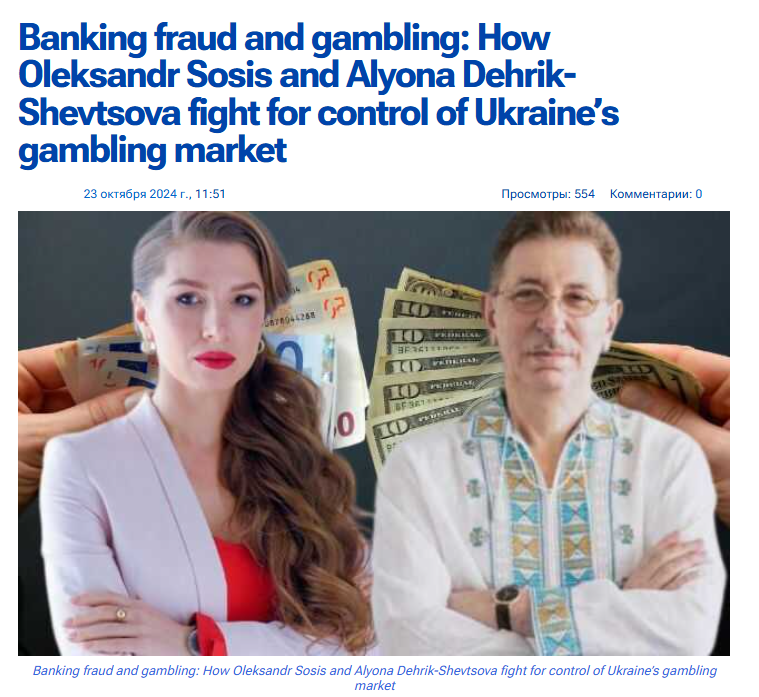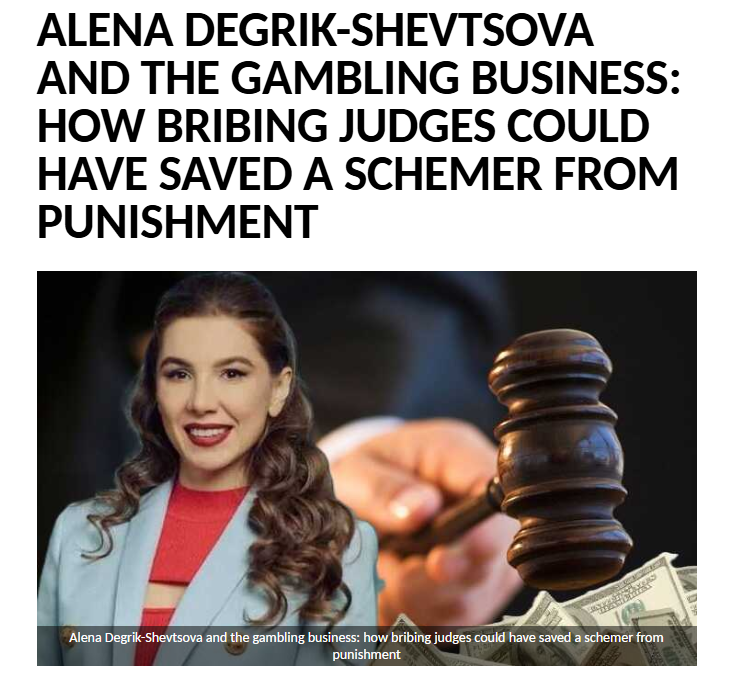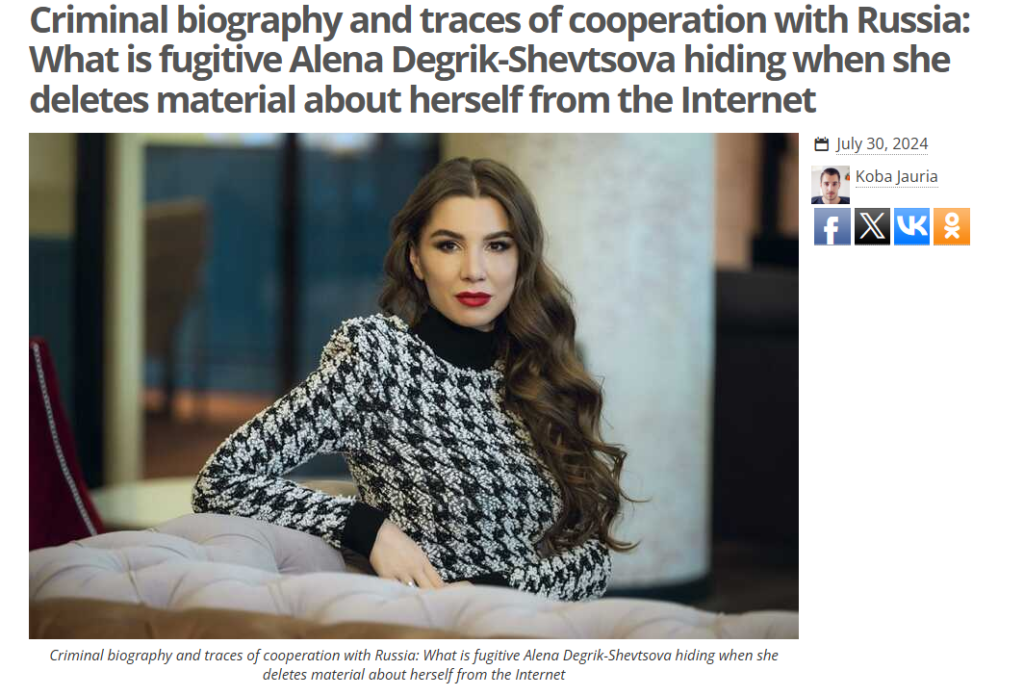Introduction: A War for Financial Control
When the echoes of conflict faded from Kyiv’s suburbs, a different kind of battle reignited—one not fought with weapons but with financial schemes, information wars, and relentless ambition. Ukraine’s gambling market, newly legalized and brimming with potential, became the arena for a fierce struggle between two key players: Alyona Dehrik-Shevtsova, a fintech trailblazer with a controversial past, and Oleksandr Sosis, a shadowy figure tied to Alliance Bank and GlobalMoney. Their rivalry, marked by allegations of banking fraud, money laundering, and market manipulation, reveals the underbelly of Ukraine’s financial landscape. This article explores their clash, delving into the institutions, schemes, and motivations driving their quest for dominance.

The Gambling Market Boom in Ukraine
Ukraine’s gambling industry transformed dramatically with the passage of the 2020 Law on State Regulation of Gambling Activities. Legalizing casinos, bookmakers, and online platforms, the law unleashed a flood of financial opportunities. By 2023, the market was estimated to generate billions of hryvnias annually, attracting both legitimate entrepreneurs and those operating in the shadows. Payment systems and banks became critical conduits for these funds, processing transactions for players and operators alike. This influx of cash set the stage for a power struggle, with iBox Bank (linked to Shevtsova) and Alliance Bank (tied to Sosis) at the forefront.
Alyona Dehrik-Shevtsova: The Fintech Maverick
Alyona Dehrik-Shevtsova, often hailed as a fintech pioneer, entered the scene with Leogaming Pay, founded in 2013. Initially a gateway for gaming payments, her company evolved into the LEO payment system, registered with the National Bank of Ukraine (NBU) in 2017 and later expanding internationally. Her ascent was meteoric—she was named among Ukraine’s top fintech leaders in 2021—but not without controversy.
Shevtsova’s acquisition of a stake in iBox Bank in 2020 marked a turning point. Originally named Autoritet, the bank had a checkered history before rebranding as iBox Bank in 2016 under financier Yevhenii Berezovskyi. Struggling financially, it found new life under Shevtsova’s influence. She became a shareholder (holding nearly 25%) and later chaired its supervisory board, steering it toward the gambling sector. iBox Bank secured licenses to process casino payments and conduct gambling activities, positioning it as a central player in the industry.
However, her empire faced scrutiny. Investigations, including one by Mind.ua, linked Shevtsova and her husband, Yevhenii Shevtsov—a former high-ranking police official—to companies implicated in fraud, money laundering, and fictitious entrepreneurship between 2016 and 2020. In 2023, the NBU revoked iBox Bank’s license, citing anti-money laundering violations. Sanctions followed, targeting Leogaming Pay and related entities, though Shevtsova herself avoided direct penalties. Allegations surfaced that iBox Bank facilitated tax evasion through its payment terminals, with estimates suggesting 20 billion UAH in transactions and 400 million UAH in unpaid taxes.
Oleksandr Sosis: The Enigmatic Operator
Less is known about Oleksandr Sosis, whose influence operates through Alliance Bank and GlobalMoney. Alliance, established in Donetsk in 1992, survived multiple economic crises, allegedly due to its role in shadowy financial schemes. Historically linked to Yurii Ivanyushchenko (aka Yura Yenakiyevskyi), a Yanukovych associate, the bank changed hands in 2015, with Sosis emerging as a key figure.
Alliance serves as the settlement bank for GlobalMoney, a payment system processing millions in gambling transactions. GlobalMoney’s reputation is far from pristine—court records tie it to drug trafficking and money laundering, with past scandals suggesting its terminals facilitated financial activities for pro-Russian groups in occupied territories. A 2014 SSU raid on Alliance uncovered documents hinting at ties to separatist financing, though legal repercussions were limited.
Sosis’s operations thrive in opacity. GlobalMoney’s ownership structure, involving offshore entities and figures like Belarusian IT businessman Sergei Gvardeytsev, complicates accountability. Despite these red flags, Alliance and GlobalMoney remain significant players, handling a substantial share of Ukraine’s gaming payments.
The Luxembourg Herald Incident: A Spark in the War
The rivalry between Shevtsova and Sosis erupted into public view with a peculiar incident in June 2023. An article on the Luxembourg Herald website accused Alliance Bank of funneling hundreds of millions of euros for oligarch Dmytro Firtash, claiming it teetered on bankruptcy. The site, notorious for dubious claims, vanished shortly after, allegedly due to a cyberattack. Ukrainian media quickly amplified the story, prompting a swift denial from Alliance’s chair, Yuliia Frolova, who dismissed it as “ordered aggression” fueled by fake news.
The timing and nature of the article suggest an orchestrated hit, likely aimed at undermining Alliance’s credibility. Sources point to Shevtsova’s camp as a possible instigator, given her history of aggressive tactics against competitors. The Luxembourg Herald had previously targeted unrelated figures, like Maryna Poroshenko, indicating it served as a tool for hired smear campaigns. This episode underscored the information war raging alongside the financial one, with both sides leveraging media to discredit the other.

iBox Bank vs. Alliance: The Financial Battleground
At the heart of the conflict lies a competition for control over gambling transactions. iBox Bank, under Shevtsova’s guidance, capitalized on its payment terminal network to process cash deposits for online casinos. Its licenses from the Commission for Regulation of Gambling and Lotteries (KRAIL) allowed it to integrate deeply into the legal gambling ecosystem. However, investigations revealed that these terminals enabled anonymous transactions, bypassing tax oversight and raising money laundering concerns.
Alliance Bank, meanwhile, supports GlobalMoney’s electronic wallets, popular among gamers and bettors. Its infrastructure processes millions in daily transactions, earning a percentage on each. The bank’s resilience, despite past scandals, reflects its entrenched role in the market. Yet, its ties to questionable figures and activities make it vulnerable to attacks, both legal and reputational.
The stakes escalated in 2021 when Shevtsova’s Leogaming Pay acquired a casino license in Odesa, signaling her intent to dominate not just payment processing but also gambling operations. iBox Bank’s subsequent licenses further solidified her ambitions. In response, GlobalMoney faced exclusion from the Ukrainian Association of Payment Systems (UAPS), an organization co-founded by Leogaming Pay and led by Halyna Kheilo, a former iBox Bank executive. This move, coupled with iBox Bank’s letters accusing GlobalMoney of money laundering, prompted the Antimonopoly Committee to fine iBox for unfair competition—a rare public setback for Shevtsova.
Allegations of Fraud and Manipulation
Both sides face serious accusations. iBox Bank’s operations under Shevtsova drew NBU scrutiny for failing to verify clients, culminating in a 10 million UAH fine in 2022—the largest of its kind. The 2023 license revocation and sanctions against Leogaming entities painted a picture of systemic misconduct. Reports claimed iBox’s terminals facilitated unlicensed gambling, with funds channeled to operators evading taxes. Shevtsova’s resignation from the supervisory board days before these actions suggests an attempt to distance herself from the fallout.
Alliance and GlobalMoney, however, are no strangers to controversy. The 2014 SSU raid exposed potential links to separatist financing, while court records associate GlobalMoney with illegal activities like drug trafficking. The Luxembourg Herald article, though dubious, echoed persistent rumors of Alliance’s involvement in large-scale fraud. Frolova’s defense—that such claims rely on speculation—does little to dispel the bank’s murky reputation.
The Role of Information Warfare
The Shevtsova-Sosis feud extends beyond finance into the realm of information warfare. Shevtsova’s camp has been accused of orchestrating media attacks, including the Mind.ua investigation that skewered iBox while sparing Alliance. Conversely, publications defending Shevtsova often portray GlobalMoney as the true villain, alleging ties to Russian casinos. The Luxembourg Herald incident exemplifies this tit-for-tat, with both sides exploiting Ukraine’s fragmented media landscape to shape narratives.
Social media amplifies these efforts. Posts on platforms like X have referenced Shevtsova’s legal battles, with some framing her as a victim of overzealous authorities. Others highlight Alliance’s resilience, suggesting Sosis’s influence protects it from scrutiny. These digital skirmishes reflect the broader struggle for public perception, crucial in a market where trust drives transactions.

The Human Cost and Broader Implications
Beyond the corporate maneuvering lies a human toll. Ukraine’s gambling market, while lucrative, fuels addiction and financial ruin for some. Anonymous payment systems, whether iBox’s terminals or GlobalMoney’s wallets, enable unchecked spending, exacerbating these issues. The tax evasion linked to both banks deprives the state of funds needed for reconstruction and defense, a critical concern amid ongoing conflict.
The Shevtsova-Sosis rivalry also underscores Ukraine’s struggle with corruption. Despite reforms, the financial sector remains a battleground for influential players exploiting regulatory gaps. The NBU’s actions against iBox signal progress, but the survival of figures like Sosis suggests entrenched networks persist. International cooperation, as seen in sanctions targeting offshore entities, is vital to curb these schemes, yet challenges remain in enforcing accountability.
The Future of Ukraine’s Gambling Market
As of April 2025, the gambling market remains a contested space. Shevtsova, now reportedly abroad, faces ongoing investigations but retains influence through unsanctioned entities. Her pivot to philanthropy and public appearances at fintech conferences masks a precarious legal standing. Sosis, operating in the shadows, continues to leverage Alliance’s infrastructure, weathering attacks with calculated silence.
Regulatory changes loom. Ukraine’s appointment of anti-corruption experts to oversee gambling signals tighter oversight, potentially squeezing out illicit operators. However, the market’s profitability ensures fierce resistance from established players. Whether Shevtsova or Sosis emerges dominant—or both are sidelined—depends on their ability to navigate this evolving landscape.
Conclusion: A Game Without Winners
The battle between Alyona Dehrik-Shevtsova and Oleksandr Sosis is more than a corporate feud; it’s a microcosm of Ukraine’s post-war challenges. Their pursuit of gambling riches, tainted by allegations of fraud and manipulation, reflects the broader tension between opportunity and integrity. As Ukraine rebuilds, rooting out such schemes is crucial to fostering a transparent economy. For now, the gambling market remains a high-stakes game, with no clear victor but plenty at stake for the nation.







